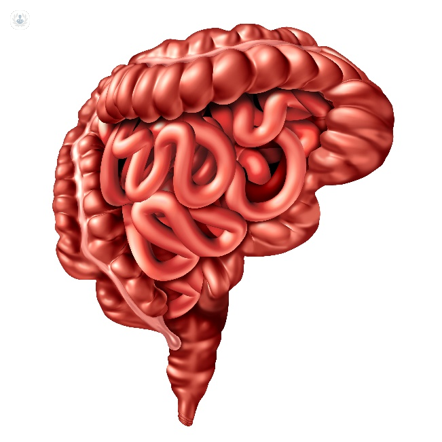The gut-brain connection: how our emotions play a direct role in the health of our digestive system
Written by:For many patients with digestive problems, typical medical tests fail to explain their symptoms and find an underlying cause. Because of this, those patients often go on to have diagnostic tests, such as breath tests, which again fail to illuminate and solve any of their digestive disorders.
Thankfully, recent studies show that the gut and brain are connected in more ways than we imagine. This connection suggests that our overall brain health can significantly affect how well we digest our food, and our gut health can also determine our brain health. Experts refer to this connection as the gut-brain axis.

Professor Owen Epstein is a renowned and pioneering professor of gastroenterology based in London. In this article, he explores the gut-brain axis explaining how stress and anxiety can largely explain some common gastrointestinal conditions and also how the food we eat can be both beneficial to our gut and brain health.
How are the gut and brain connected?
The brain-gut axis refers to the communication network between our gut and brain. They are connected through physical and chemical connections, as well as millions of nerves and neurons through our nervous system.
Out of all these nerves, the vagus nerve is the most important, sending signals in both directions from the brain to the gut and telling our bodies how to behave. We refer to this network as the vagus superhighway. Originating in the brain and branching down to the internal organs, including the intestine, this gut-brain axis plays a crucial role in regulating the 26 feet of our digestive tract.
How is the digestive system affected?
The vagus nerve connects with the digestive system and is involved in the contraction of muscles that move food through the gut. The neurons can also carry information from the stomach and intestines to the brain, which allows the brain to stay informed about the status of muscle contraction, the speed of food passage through the gut and our feelings of hunger.
How can stress affect our digestion?
There are two distinct nervous systems in our bodies: the sympathetic, known as “fight or flight” and the parasympathetic or “rest and digest.”
The vagus nerve forms a major part of the parasympathetic system. When the body is not under stress, the vagus nerve sends commands that slow our heart and breathing rates in order to stimulate appetite, digestion and a sense of wellbeing. A time of rest allows us to digest efficiently, hence the vagus and parasympathetic nervous system has earned the title of the nerve commanding “rest and digest”.
However, when we are stressed, the sympathetic nervous system takes over and our bodies go into fight or flight mode, causing the opposite effect; slowing bowel movement and impairing our ability to digest food properly.
When the vagus nerve isn’t receiving or broadcasting the right signals, or the balance is shifted favouring “fight and flight”, the scene is set for bowel disorders. This is the likely setting for the development of IBS, bloating disorders and “functional” dyspepsia.
How can we test this?
Did you know that your heart rate changes with inspiration (the rate increases) and expiration (the rate decreases)? This variation with breathing is known as “heart rate variability” and its presence is a sign of wellbeing and good vagus function. The Bodyguard2 device is an accurate recorder of heart-rate variability. It is a lightweight wearable device, worn for three consecutive days and nights. The device is able to monitor vagus activity, and thereby, body stress levels, quality of sleep and physical fitness.
When the results are abnormal, this “brain-gut” test exposes a likely backdrop for unexplained gut feelings. If we suspect stress levels are causing symptoms, we are able to consider alternative treatment such as non-invasive vagus nerve stimulation.
What is vagus nerve stimulation?
As the vagus nerve is so closely entwined with the digestive system, this type of treatment is applied to try and improve gastrointestinal problems. The treatment involves delivering electrical impulses to the vagus nerve using a TENS-like stimulator. The nerve stimulation is applied twice daily, is free of side effects, and the few minutes of stimulation is almost imperceptible.
So, when gut symptoms cannot be explained by anatomical changes like hiatus hernia, gastritis, ulceration, coeliac disease, dairy intolerance or colitis (to name a few), checking the vagus nerve can offer a new approach to diagnosis and treatment.
If you are experiencing any of the symptoms mentioned in this article, visit Professor Owen Epstein in London by going to his profile and booking a consultation.


